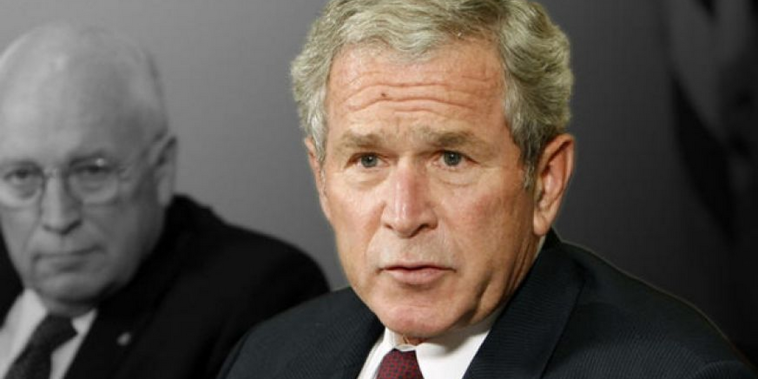Bush 41 raised taxes and signed a host of Democratic legislation. I supported Pat Buchanan’s primary challenge in 1992. (For the record, it was moral support — I wasn’t actually old enough to vote.)
Bush 43 held the line on taxes, but not much else. Under his watch, government grew faster than it did when Bill Clinton was president. He expanded the Department of Education and rammed through the biggest new entitlement since LBJ’s Great Society. Surpluses turned into deficits, a broadly popular war against terrorism turned into the fiasco that was Iraq.
If the country can avoid Jeb and George P. Bush administrations, I’ll sing with Walter Savage Landor: “God be praised, the Georges ended.”
Yet I have come around to the view that Bush 41 is the best living president, although since Ronald Reagan died the competition hasn’t been very steep. And while the results of Bush 43’s presidency have much less to recommend them, he’s obviously a nice enough guy.
So as 43 promotes his new book “41: A Portrait of My Father,” let’s give some credit where it’s due.
1. Bush eventually admitted he was wrong about WMD in Iraq
In February 2004, Tim Russert read the president’s words back to him: “Intelligence gathered by this and other governments leaves no doubt that the Iraq regime continues to possess and conceal some of the most lethal weapons ever devised.” Russert concluded, “That apparently is not the case.”
Bush replied, “Correct,” later adding “I expected to find the weapons.”
“Iraq did not have the weapons that our intelligence believed were there,” Bush said in October 2004, less than a month before voters were to decide on his second term.
“No one was more shocked and angry than I was when we didn’t find the weapons,” Bush wrote in his memoirs in 2010. “I had a sickening feeling every time I thought about it. I still do.”
Bush has never claimed the discovery of decrepit weapons from the Iran-Iraq war in the 1980s proved him right about WMD in Iraq.
2. Bush has at least obliquely acknowledged the Iraq war’s role in the rise of ISIS
While generally defending the decision to invade Iraq and appearing to criticize President Obama, Bush conceded, “My regret is that — a violent group of people have risen up again. This is ‘Al Qaeda plus.’
That “violent group” rose up in reaction to the power vacuum and sectarian warfare in Iraq following the war.
3. Bush ultimately did not widen the war to Iran and Syria
Many people in the former president’s foreign-policy orbit advocate conflict with both regimes now, even during a war with ISIS. Bush wrote in his memoirs that he ordered the military to draw up attack plans for both countries. He was particularly concerned about an Iranian bomb and listed Iran in the “Axis of Evil.”
But in the end, Bush decided two wars were enough. He did not bomb Iran or Syria. And while his second term included the surge in Iraq, he also brought in Robert Gates and pursued a slightly more restrained foreign policy than in his first term.
4. Bush hasn’t spent his retirement attacking constitutional conservatives and libertarian Republicans
Dick Cheney, his vice president, endorsed against Rand Paul and has blasted him as “basically an isolationist.” Karl Rove, his chief political strategist, called Justin Amash “the most liberal Republican” and said the Michigan lawmaker votes with Nancy Pelosi when GOP bills aren’t perfect. (Conservative ratings groups say otherwise.)
But Bush really hasn’t had much to say about the Republicans who would chart a very different course on foreign policy than the one he followed for eight years. It would be understandable if he did. Many of these Republicans have frequently criticized him and senior figures in his administration. But just as Bush has mostly refrained from criticizing Obama, he has done the same with his GOP detractors.
By now you may be asking: why compliment him on any of these things? He is still an unrepentant hawk and the consequences of his foreign policy were mostly bad. Is our Bushes learning? Probably not. At most, you might say I am damning him with faint praise.
Nevertheless, all of the above is more than I can say about many Bush administration officials and rank-and-file Bush supporters, who engage in WMD revisionism, call for new Iraq-like wars and spend their time excoriating Republicans like Paul and Amash in over the top terms.
Dubya’s fans say things about his administration he isn’t willing to claim. Good for him.

